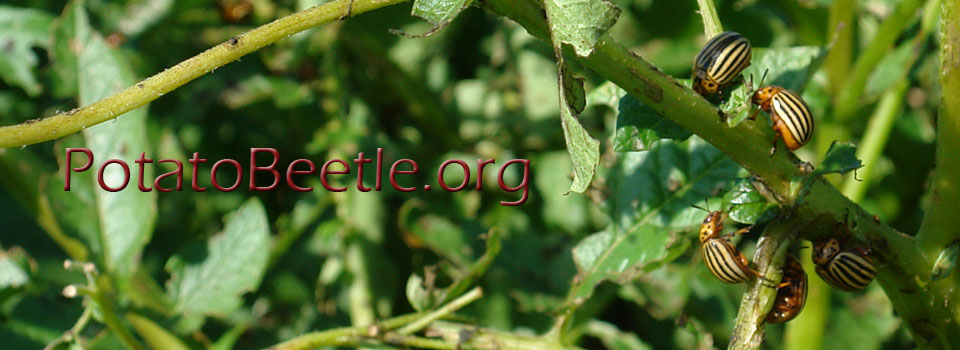Wang, J., Z. Gao, M. Yang, R. Xue, H. Yan, K. Fu, Z. Zhang, W. Guo, G. W. Felton, and R. Zeng. Journal of Pest Science, https://doi.org/10.1007/s10340-019-01173-x
Colorado potato beetle (CPB; Leptinotarsa decemlineata) has been detected in Xinjiang, China, since 1993 and has caused serious damage to potato production during its eastward expansion to new geographic ranges. Symbiotic bacteria often play an essential role for insects to exploit novel food sources and expand into otherwise inaccessible ecological niches. An important yet unresolved question is whether herbivore populations from different geographic ranges have distinct or equal abilities to adapt to plant-induced defenses. We examined whether two geographic CPB populations collected from Urumqi and Ili varied in triggering induced defenses in potato plants, and the results demonstrated that plants damaged by Ili CPB larvae showed higher levels/activities of the defensive protein polyphenol oxidase (PPO) than those damaged by Urumqi CPB larvae. Intriguingly, application of oral secretions (OS) from Ili CPB larvae triggered higher PPO activity in potato compared with the treatments by OS collected from Urumqi larvae. Moreover, higher counts of bacterial colonies were observed in Urumqi CPB larvae by traditional culturing and quantitative PCR. Comparing the gut bacterial composition of CPB individuals by 16S rRNA amplicon sequencing also revealed higher abundance and diversity of gut-associated bacteria in the Urumqi population than that in the Ili population. These results indicate that the gut bacteria of CPB larvae were geographically shaped during the process of invasion, which played an important role in mediating plant–insect interactions and possesses a great potential to drive further invasion.
